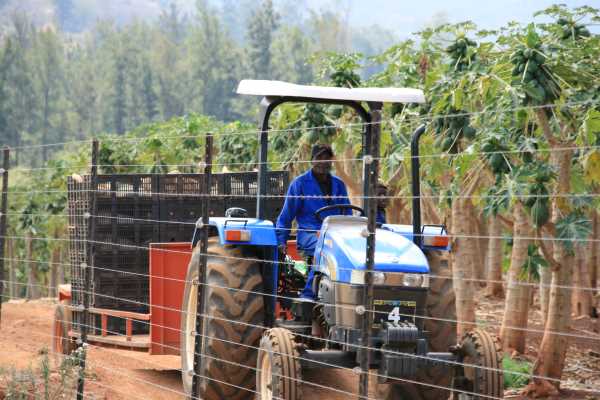In light of the heated and ongoing debate around land reform, one of the most contested issues in the country, and with this week’s anticipated submission of the Parliamentary Review Committee’s report on findings from the public hearings relating to the amendment of section 25, the Vumelana Advisory Fund hosted industry experts for a discussion on current issues impacting land reform, especially within the context of the Covid-19 pandemic and a distressed economy.
Speaking at the event, Dr Mathole Motshekga, co-chairperson of the Constitutional Review Committee, confirmed that the ad hoc committee is set to submit the report from the public hearings on the Land Expropriation Bill. Once all parties have accepted it, the bill will be tabled at the National Assembly for consideration.
Dr Motshekga highlighted that “Any discussions around land reform and expropriation must appreciate the historical context of land reform, beginning from 1652, when the Khoi and the San people were dispossessed of their land, some of the first people to be forcibly dispossessed. This understanding will enable efforts to support restitution, as these groups, even today, remain the most affected groups of people.”
Bulelwa Mabasa, Director and Head of the Land Reform Restitution & Tenure Practice at Werksmans Attorneys, argued that “One of South Africa’s biggest challenges with land reform is that the country is still sitting with archaic legislation that was developed to serve the governments and leaders of the past regime. This needs to be resolved through revisions and the introduction in some instances of new legislation.”
She noted that another challenge relating to land reform is the issue of transparency around ownership and availability of land across the country, and this needs to be addressed, through a very intentional administrative process.
Mabasa highlighted that, “One fundamental issue relating to the Expropriation Bill is that from a Constitutional basis it would have been appropriate first to have the amendment of section 25 finalised – because that amendment should be what informs the content of the Bill, that is the procedural constitutional issue. This is what would have been expected and is a legal issue of the principle of subsidiarity.
She noted that as the country finds itself in its present circumstances, it is worthwhile to identify critical aspects of the Bill, the important role it will play in clarifying how expropriation will be undertaken, instances where there would be zero compensation, and its ability to provide clarity on issues around nationalisation.
“With some flaws, the Expropriation Bill to an extent gives comfort that the rule of law will govern expropriation,” said Mabasa.
She noted that while expropriation is a global phenomenon used for redistribution, restitution and reform across the world, within the context of South Africa, it must not be used as the only tool to address the land issue, because expropriation alone will not achieve the results it seeks to accomplish in reform.
“It’s also important that the land reform programme be not limited to expropriation,” cautioned Mabasa.
Mazwi Mkhulisi, Programmes Manager of non-government organisation Vumelana Advisory Fund, supported Mabasa’s argument around the role of expropriation within land reform, and the need to explore different approaches to address the land issues.
He said, “To accomplish the broader land reform objectives, strong partnerships between communities and private investors need to be forged, as partnerships present one of the most plausible solutions to addressing land reform.”
He noted that “ While partners bring capital, access to markets, resources and skills to complement the government resources provided to communities, such partnerships should be facilitated through a closely mediated process to ensure representation of the interests of both parties – the community and investors.”
Speaking about the approaches to be taken in driving land reform, Mkhulisi highlighted that, “We equally need to focus on the inventiveness of South Africans around approaches that have been explored to date, as there are a number of initiatives across the country that are driving positive stories around land reform, and there is a lot from those that policymakers can draw lessons for policy development.”
With the government making efforts to fast track the pace of land reform, and with the recent announcement of an additional 700 000 hectares of underutilised land to be redistributed, Wandile Sihlobo, Chief Economist, Agricultural Business Chamber of South Africa (Agribiz), concurred with the panellists that it is critical to explore diverse approaches to addressing the land issue.
“If managed properly, this process has the potential to make a difference in redistribution efforts. What government is doing with the current 700 000 hectares is a good start. However, perhaps what needs to be further explored is ownership of the land after five years,” said Sihlobo.
The general consensus among panellists is that diverse approaches must be taken to address the land issue in South Africa. However, they cautioned that it is crucial to engage communities, as they form a crucial part of the process, and closely monitor partnerships to ensure that communities do not become indebted to their so-called partners in the process. They highlighted the need for proper resourcing of land reform, given the current political will around it. They argued that there is a need to elevate the prominence of resourcing, as land reform cannot be driven without the funding and resources needed, even with political will in place.








